“I really do not want more community than we already have at this church,” shared a congregant during a Sunday morning adult Sunday school discussion. “What I like about this church is that no one judges you for not being more involved or attending regularly. If we had more community, people would expect too much from me.”
I remember being dumbstruck when I heard these words, especially in this church context, having never considered that a Mennonite congregation—or any of its members—would not embrace community as one of its central organizing principles.
I need to admit, though, my afterthought was, maybe he is right. If community means I am expected to be present every Sunday, give money, sit on at least one committee, join a smaller fellowship group, contribute to monthly potlucks, and provide meals and support to congregational members who are sick or in need, who has the time or energy for all that?
Maybe this is the same reason so many people do not know their neighbours. Do we really want to know when they are sick? Do we want to help them seed a new lawn or dig up one to plant a garden? Do we want to trust them enough to lend them a car or even our favourite kitchen tool?
Is it worth the investment?
Some days I think it would be so much easier to be anonymous in the crowd, to come and go as I like, to care only for those I choose and when I choose. I love this feeling of being free, anony-mous, of living life on my terms. Besides, my days are so full, I am constantly with people and exhausted most days when I get home. I deserve that glass of wine by myself, in the backyard with that “keep your dog inside” and “only cut your lawn from 11-12 Saturday morning” kind-of-quiet all around.
Alone
I often feel alone and I do not like it. I find this feeling especially troublesome when I am in the midst of a crowd. You know that feeling you get when you go to a restaurant alone, or you are at a reception and there is an awkward moment when everyone is talking to someone other than you? You stand there alone, feeling left out, isolated, self-conscious . . . feeling like you want to hide or just walk away.
I am not talking about the introverted side of me that loves time alone to read, to re-energize, and to sit in the quiet of my own thoughts. I am talking about this deep-pitted feeling that it is all up to me. In the midst of the crowd—people all around, even people that love me—I get this anxious feeling and hear this recurring voice that reminds me to “take care of yourself because no one else will.”
I recently had a conversation with a friend who reminded me that we die alone. Therefore, as we age, this pervasive sense of alone is an evolutionary preparation for death. That may be the most depressing thought anyone has ever shared with me.
What I find most curious is that this alone feeling I get is not related to the loneliness I feel at various times. Loneliness might happen when I am missing someone or wishing I was with others. I actually like the feeling of loneliness if for no other reason than that it indicates that I still love and want to be around those others who are dear to me. By viewing loneliness through this lens, it means I am very much alive. It is a part of living in community.
Community
During a recent interview, a young man just out of high school shared, “When I am in community, I do not feel alone.” He was clearly an introvert, shy and self-conscious. But for him, this feeling of belonging was the antidote to feeling alone.
Community has many benefits and feeling a sense of belonging is most likely the most important. To feel a sense of belonging means that we feel we are in the right place, that we feel welcomed and embraced in a place or with a group. To belong is to be cared for and to reciprocate that caring, to know that “I am home.” It is a willingness to extend our identity to a group of people or to an experience.
Having others in your life whom you trust can help you make sense of who you are, and they can help shape your identity and recognize the gifts you have to offer. The African term ubuntu, often used by Nelson Mandela, means “I am human because I belong. My humanity is caught up, is inextricably bound up in yours.”
Community can better your economic prospects. Those in your community—family, friends, fellow church members and neighbours—can help you find a job, or lend you money for a business or to buy a house. They can also teach you to garden or help you learn a new skill. They can support you when you are unemployed and help you choose an educational direction. They can bind together to create a credit union, a school or community foundation, which all enhance your economic prospects.
Community makes us healthier. Heart surgeon Dean Ornish wrote a book entitled Love and Survival. In it, he shares his observations of patients with many supportive relationships and how they were more than twice as likely to recover well and live longer when compared to those who had fewer or no close relationships. Therefore, the love, emotional support and positive healing energy others bring to us during times of illness contribute to our healing just as much as medical science and procedures.
Perhaps the best reason to pursue more community in our lives is that it has proven to make us happier. A whole body of thinking is now catching on, known as the “economics of happiness.” At its core is the argument that our gross domestic product is not a very good measure of human progress; instead, we should be measuring those things that enhance our collective quality of life.
One of the leading scholars advanc-ing this idea is John Helliwell, a world-renowned professor at the University of British Columbia who concludes his talks by leading the audience in the song, “The More We Get Together, the Happier We’ll Be.”
A missed opportunity
Our Mennonite churches are struggling to maintain membership growth. Many are losing their young people to other denominations or they are stepping away from church altogether. Most of our Mennonite institutions have opened up to “non-Mennonite” membership, not so much to enhance their mission, but to survive.
Most blame this decline in church attendance to shifting priorities in the larger society and to people moving away from a faith identity.
What has contributed to my own Mennonite identity has been both a belief system that forms my faith and the historical Mennonite community I belong to. This identity certainly includes borscht and shoofly pie, but also peace and service. My Mennonite identity and the people who have shaped it make up an important core of our sense of community for me and many others in our congregations.
Have we taken the importance of our identity as a community for granted? Have we downplayed the community aspect of our faith in order to emphasize the religious or spiritual dimension? I believe we have, and that this certainly must be considered when we look to determine the reason for struggling churches.
The imbalance between the commu-nity life of a congregation and the spiritual or faith life of a congregation may be contributing to a loss of commitment and membership. Young people, adults in transition or anyone struggling in life and questioning their faith need their community identity and a deep sense of belonging.
I know there are those who now will immediately say that the two are inseparable for them. Their spiritual and church lives are one and the same. To this I would say, try just for a moment to separate them and to recognize the ceremo-nies we use to strengthen our faith and those which strengthen our community life. Yes, they are connected, but it might be helpful to view them as separate in order to consider how we might strengthen each.
Our spiritual life is enhanced through studying the Bible, prayer, sermons, communion, singing and generally worshipping together. These also support a communal life, as singing and praying together bind us in a common experience, although their primary purpose is to strengthen our spiritual life.
Our communal life is enhanced by small group gatherings in our homes or through potlucks where we sit together and visit; through gathering to celebrate a wedding or mourn together at a member’s funeral; through bringing meals to the sick or visiting each other in the hospital; through organizing peace walks, credit unions, foundations, schools and service projects; or joining together at the Mennonite relief sale. And these actions all build faith as we act on our beliefs, but their primary purpose is to strengthen the well-being of the community and community life.
Deepening community
At my home congregation, Stirling Avenue Mennonite Church in Kitchener, Ont., we are taking four Sunday adult education hours to explore the role of community in our congregational life. The goal of this exploration is, first of all, to celebrate our communal life by sharing our stories, and, second, to consider the importance of and restore our commitment to a communal life together.
We are exploring community by considering these four concepts:
• Share our story: The journey towards community begins as we share our stories, be they stories of fears or of joy. Sharing helps us to open up, to become vulnerable and to hear other people’s stories. Thus do we begin to work together to distinguish truth from untruth and rational fear from irrational fear, to determine what we might do together. When we really hear one another, the bond of community is forged between us. We smile at each other; we feel warmth and joy as if we are home. In these times, we must make it a priority to take time for community. We need one another now, and we will need one another even more as times become more difficult.
• Enjoy one another: As we continue to share our stories, and do so with the same players over time, reciprocity and trust grow between us. This is an investment in deepening community, and the dividends this investment pays will be crucial to us in times of need. When we enjoy one another in a community we have invested in, we become a collective witness to the events around us. We can celebrate our achievements and those of our children together. How sweet are the victories and even failures that are experienced in community!
• Take care of one another: Reciprocity and trust have a wonderful effect when reaching out to help one another becomes as natural as breathing. We take care of one another not only because it is the right thing to do, and not only because people will help us if we help them, but primarily because the bond of love that has grown between us moves us to do so. Mutual acts of caring that happen often forge a sense of belonging. When we feel we belong, we feel safe and fulfilled; and when we feel safe and fulfilled, we can dare to develop hope and common purpose. Together, we have the strength to overcome almost any challenge that comes our way.
• Build a better world together: The first three acts of community give us energy for the fourth act of deepening community: building a better world together. In fact, we become a force for change that is unstoppable. The work of restoring our communities feels light and possible. We no longer feel alone in our fear or hopeless in our dreams; rather, we have the courage to see our dreams become real.
Each Sunday, we share a Bible verse and introduce the topic for exploration; then two members of the congregation share their experience of community. Next, we take time to share our own experiences in small groups.
During the four Sundays, we are able to answer these questions: How do we come to know each other’s stories? When do we have fun together and why is this important for our congregational life? When have we felt cared for by this congregation, and when have we had the opportunity to give or express our caring to others in our community? What do we do together to make the world a better place and how has working together this way deepened our commitment to our congregational life?
Investing in community
Like any investment, our faith commu-nity takes time and effort. We spend years investing for our retirement, setting aside dollars in order to live a good life in our old age. Our financial advisors tell us to start this process early, when we are young, in order to have enough when we’re old, although they’re always quick to add that it’s never too late to start.
Investing in relationships to deepen community reaps a similar benefit. A strong family, a faith community or club, neighbours we can rely on, and friends who make the hours pass quickly: these are equally worthy investments. The skills we learn by seeking and living in community, and the network of relationships we build, will provide us with the joy and security we need, especially should we experience times of loneliness, financial insecurity or failing health.
Our congregations can be places of community and, in turn, strengthen people’s lives. Our faith will not always be strong, but the community of believers will hold us up at these times. They, of course, can only do so if they—we—are strong.
Paul Born is a community activist and best-selling author, who has just released a new book, Deepening Community: Finding Joy Together in Chaotic Times. He is also president of Tamarack—An Institute for Community Engagement; a faculty member of the Asset-Based Community Development Institute; and a senior global fellow of Ashoka, the world’s largest network of social innovators. Learn more at www.deepeningcommunity.org.
–Posted June 4, 2014
For reflection and group discussion, go to the discussion questions related to this article.
See also the editorial, Community at its best.


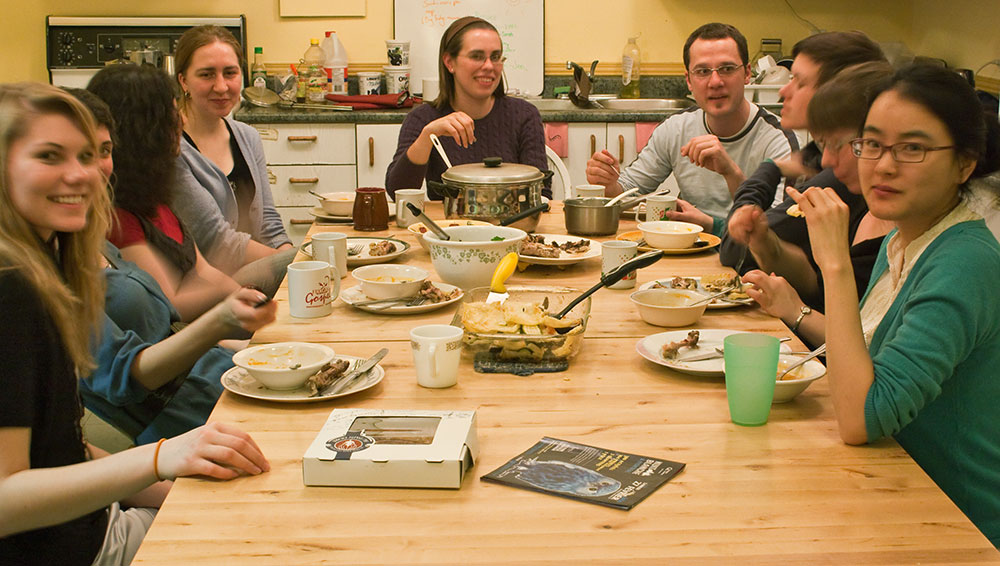

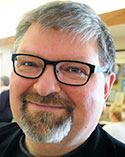
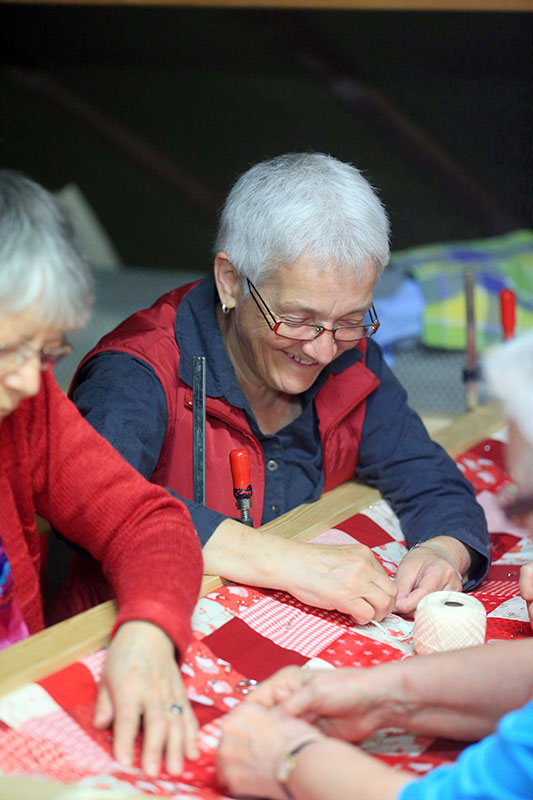
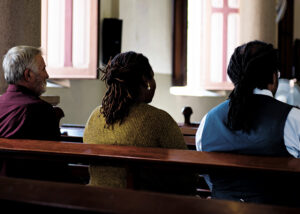
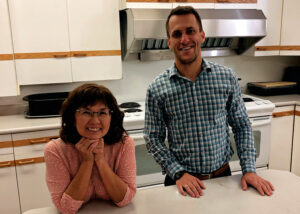
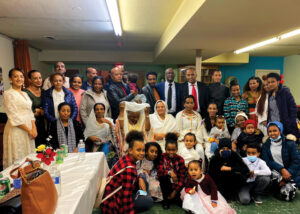

Leave a Reply
You must be logged in to post a comment.